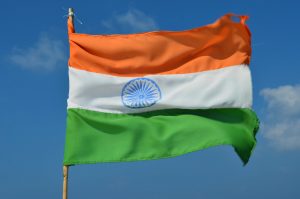Last month, Thomas Friedman wrote in his New York Times column that world history should henceforth be divided into “B.C. and A.C.” – “Before Corona” and “After Corona.” It’s far too early to make any sweeping pronouncements on how the world will change after the coronavirus pandemic passes – or if it will change at all. But one area to look at is global cooperation.
The world has seen many epidemics in recent years, but all of them were largely contained within the regions where they originated, from SARS to Ebola and Zika. But COVID-19 has hit nearly every country in the world in just over three months – and three countries have registered several more cases than China, where the virus originated.
If there can ever be a strong argument for global action, a pandemic would have to be it. The presence of a virus anywhere is clearly a threat to people everywhere. Globalized cities are the most vulnerable and, by extension, any country that transacts through them is at risk.
The only way to prevent a future pandemic is to build stronger and more effective public systems across countries. That means more global cooperation, not less. International organizations must receive strong support from all global powers in drawing up and implementing policies to strengthen public systems worldwide. Countries must be more transparent about their shortcomings and needs – and other countries must be more willing to support them in fixing those gaps.
Stronger trade links must make healthcare cheaper and more accessible around the world; R&D in the U.S. must inform the manufacturing of medical equipment in China and Mexico to meet demand across Asia and Africa. All this means that international laws, which ensure the transparency and accountability of governments, must have more buy-in and be enforced collectively by the world’s nations.
Yet, in the lead-up to the coronavirus pandemic, the world was moving decidedly in the opposite direction, with protectionism and nationalism worldwide. The U.S. and China are currently locked in a blame game over who was responsible for the pandemic. Meanwhile, multiple reports have showed that China flouted norms of the World Health Organization (WHO) by covering up early cases last December. In Europe, far-right nationalists have used the pandemic to boost their anti-globalist rhetoric. In February, U.S. President Donald Trump proposed to halve American funding to the WHO itself.
After World War II, America recognized the need for global development and raised a number of international institutions for the cause. Yet, in recent times, the policy priorities of multilateral action have shifted almost exclusively to security issues. The world is rife with military alliances, from the transatlantic to the South China Sea, involving all the world’s major powers. Yet, little attention is devoted to the strengthening of public systems worldwide. While Trump has cut funding for aid programs, he has diverted more money to the military.
In the post-coronavirus world, these policy priorities must switch. That is good news for New Delhi: A shift in multilateral priorities towards global development is consistent with India’s own domestic and foreign policy interests. Despite domestic problems, India has stood out for its globalism during the ongoing pandemic. Last month, the Modi administration launched a regional cooperation program in South Asia. First, India pledged $10 million towards an emergency SAARC fund. Later, India explored an information exchange platform (IEP) to facilitate exchange of expertise among South Asian health professionals. But this is not just charity: Inputs from such forums would help India overcome its own public health challenges, as the pandemic stretches its capacity.
In the post-coronavirus world, such exchange of information and multilateral collaboration would be crucial – not just in resisting a relapse of the virus, but also in preventing a future pandemic. That is an initiative that India should want to lead. It already has the infrastructure: As early as 1964, New Delhi established the Indian Technical and Economic Cooperation (ITEC) Programme to assist fellow developing countries. Among other support, the ITEC provides partners with training on a wide range of contemporary policy issues, deputes Indian experts abroad, and provides consultancy services on capacity building. The Indian government also engages in sharing best practices in governance with partner countries through various forums. In 2012, New Delhi established the Development Partnership Administration (DPA) to support the implementation of development projects worldwide.
But a lot of what India currently does is either bilateral or South Asian in scope – not global. In the ‘A.C. world’, New Delhi needs to expand its cooperation programs into a global effort: Engage in the multilateral development of solutions to global policy challenges; and share lessons and experiences to progressively strengthen public systems and state institutions worldwide.
For years, New Delhi has sought to stake its claim to global leadership. Now, it has a template and the opportunity.

































